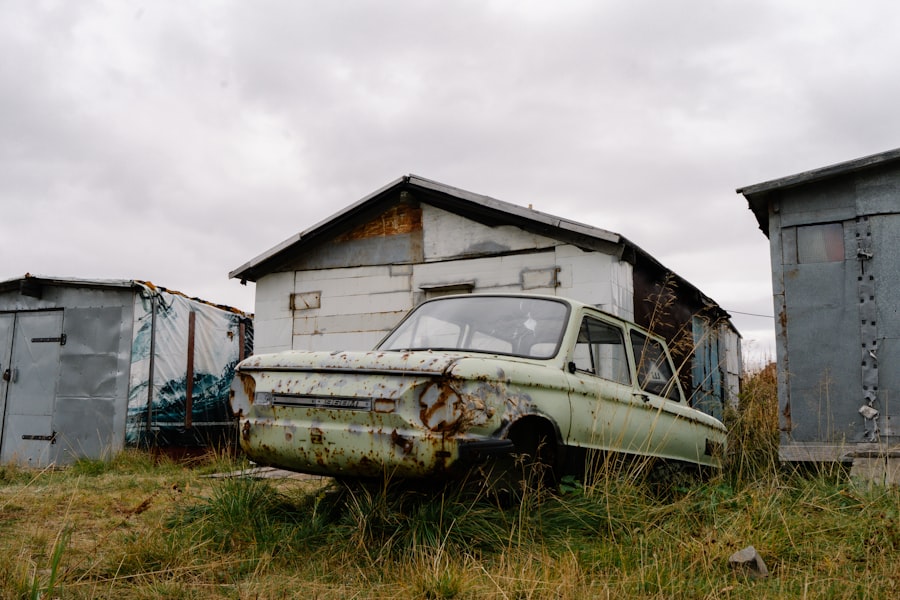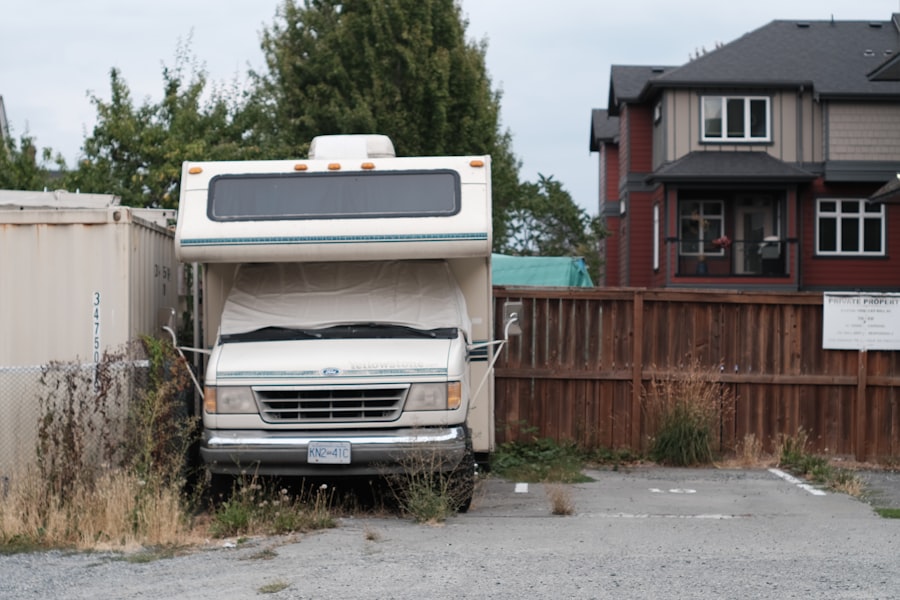Repossessed mobile homes are manufactured homes that have been reclaimed by lenders or financial institutions due to the previous owner’s failure to meet mortgage obligations. This situation often arises when homeowners default on their loans, leading banks or credit unions to take back the property to recover their losses. The process of repossession can vary by state, but it typically involves a legal procedure where the lender obtains the right to reclaim the home after a series of missed payments.
Once repossessed, these homes are often sold at auction or through real estate listings, providing potential buyers with an opportunity to acquire a property at a reduced price. The market for repossessed mobile homes can be quite dynamic, influenced by various economic factors such as interest rates, housing demand, and the overall state of the economy. In many cases, these homes are sold “as-is,” meaning that buyers may need to invest additional funds into repairs or renovations.
Understanding the nuances of this market is crucial for prospective buyers, as it can help them navigate the complexities of purchasing a repossessed mobile home. Additionally, buyers should be aware of the differences between repossessed mobile homes and traditional real estate transactions, including the potential for quicker sales and less competition in certain areas.
Key Takeaways
- Repossessed mobile homes offer affordable housing options with potential cost savings.
- Buyers should carefully inspect condition and consider location, legal status, and financing options.
- Financing can be obtained through specialized lenders or personal loans tailored for mobile homes.
- Risks include hidden damages, unclear titles, and possible liens, requiring thorough due diligence.
- Renovation and customization can enhance value and comfort but may require additional investment.
Benefits of Buying Repossessed Mobile Homes
One of the most significant advantages of purchasing a repossessed mobile home is the potential for substantial cost savings. These homes are often priced below market value, making them an attractive option for first-time homebuyers or those looking to downsize. For instance, a repossessed mobile home that originally sold for $100,000 might be available for as little as $60,000, depending on its condition and location.
This price reduction can provide buyers with the opportunity to invest in other areas, such as renovations or upgrades, which can further enhance the home’s value. Another benefit is the speed of the transaction process. Unlike traditional real estate sales that can take weeks or even months to finalize, buying a repossessed mobile home can often be completed more quickly.
Lenders are typically motivated to sell these properties to recoup their losses, which can lead to more straightforward negotiations and faster closings. This efficiency can be particularly appealing for buyers who need to relocate quickly or who are looking for a temporary housing solution.
Factors to Consider When Buying Repossessed Mobile Homes

When considering the purchase of a repossessed mobile home, several critical factors should be taken into account. First and foremost is the condition of the home itself. Many repossessed properties may have been neglected or poorly maintained by previous owners, leading to potential issues such as structural damage, plumbing problems, or electrical issues.
Buyers should conduct thorough inspections and consider hiring professionals to assess the home’s condition before making a purchase. This step is essential not only for understanding the immediate costs associated with repairs but also for evaluating whether the investment aligns with their long-term goals. Another important factor is the location of the mobile home.
The value of real estate is heavily influenced by its surroundings, including proximity to schools, shopping centers, and public transportation. Buyers should research the neighborhood and consider factors such as crime rates, community amenities, and future development plans that could impact property values. Additionally, zoning regulations and land use policies can affect how a mobile home can be used or modified in the future, making it crucial for buyers to familiarize themselves with local laws before committing to a purchase.
Where to Find Repossessed Mobile Homes for Sale
| Source | Type of Listings | Average Price Range | Location Coverage | Contact Method | Additional Notes |
|---|---|---|---|---|---|
| Bank Repossession Auctions | Repossessed Mobile Homes | 5,000 – 25,000 | Nationwide | Phone/Email | Often require pre-approval or deposits |
| Online Auction Sites (e.g., Auction.com) | Repossessed Mobile Homes & Land | 3,000 – 30,000 | Varies by listing | Online Bidding | Check auction terms carefully |
| Mobile Home Dealers | Repossessed and Used Mobile Homes | 7,000 – 40,000 | Regional | In-Person/Phone | May offer financing options |
| Local Classifieds (e.g., Craigslist) | Private Sales of Repossessed Homes | 2,000 – 20,000 | Local | Phone/Email | Buyer beware: verify ownership |
| Government Surplus Auctions | Repossessed Mobile Homes from Various Agencies | 4,000 – 22,000 | Nationwide | Online/Phone | Occasional listings, check regularly |
Finding repossessed mobile homes for sale requires a proactive approach and an understanding of where these properties are typically listed. One common avenue is through financial institutions such as banks and credit unions that handle repossessions. Many lenders maintain websites where they list available properties, often providing detailed information about each home’s condition and pricing.
Additionally, real estate auction sites frequently feature repossessed mobile homes, allowing buyers to bid on properties directly. Another valuable resource is local real estate agents who specialize in manufactured homes or foreclosures. These professionals often have access to listings that may not be publicly advertised and can provide insights into the local market.
Networking within community groups or online forums dedicated to mobile home ownership can also yield leads on repossessed properties. Furthermore, government agencies occasionally sell repossessed homes through programs aimed at promoting affordable housing, making it worthwhile for buyers to explore these options as well.
How to Finance the Purchase of a Repossessed Mobile Home
Financing a repossessed mobile home can differ significantly from traditional home financing due to the unique nature of these properties. Many lenders offer specific loan products designed for manufactured homes, which may include personal loans or chattel loans rather than conventional mortgages. Chattel loans are particularly common for mobile homes since they treat the home as personal property rather than real estate.
This distinction can affect interest rates and repayment terms, so it’s essential for buyers to shop around and compare different financing options. Additionally, buyers should consider their credit score and financial history when seeking financing for a repossessed mobile home. Lenders may have varying requirements based on these factors, and those with lower credit scores may face higher interest rates or stricter terms.
It’s advisable for potential buyers to obtain pre-approval from lenders before beginning their search for a repossessed home. This step not only clarifies their budget but also strengthens their position when negotiating with sellers.
Tips for Inspecting Repossessed Mobile Homes

Inspecting a repossessed mobile home is a critical step in the buying process that can save buyers from unexpected expenses down the line. A comprehensive inspection should cover both the interior and exterior of the home. Buyers should look for signs of water damage, mold growth, or pest infestations that could indicate underlying issues.
Checking appliances and systems such as heating, cooling, plumbing, and electrical wiring is also essential; these components can be costly to repair or replace if they are not functioning properly. It’s beneficial to enlist the help of a qualified inspector who has experience with manufactured homes. These professionals can identify potential problems that an untrained eye might overlook and provide an objective assessment of the home’s condition.
Additionally, buyers should take note of any repairs needed and factor these costs into their overall budget. Understanding what repairs are necessary will help buyers make informed decisions about whether to proceed with the purchase or negotiate a lower price based on needed improvements.
Potential Risks of Buying Repossessed Mobile Homes
While there are numerous benefits to purchasing repossessed mobile homes, potential risks must also be considered. One significant risk is the possibility of hidden defects that may not be immediately apparent during an inspection. Since these homes are often sold “as-is,” buyers may find themselves responsible for costly repairs shortly after purchase.
Issues such as foundation problems or outdated electrical systems can lead to significant financial burdens if not addressed promptly. Another risk involves legal complications related to ownership and title transfer. Buyers should ensure that there are no outstanding liens or claims against the property before finalizing their purchase.
Failing to do so could result in legal disputes or additional costs down the line. It’s advisable for buyers to work with legal professionals who specialize in real estate transactions involving repossessed properties to navigate these complexities effectively.
Renovating and Customizing Repossessed Mobile Homes
Renovating and customizing a repossessed mobile home can transform it into a comfortable living space tailored to individual preferences. Many buyers choose to undertake renovations as a way to increase the home’s value while also making it feel more like their own. Common renovation projects include updating kitchens and bathrooms, replacing flooring, and enhancing curb appeal through landscaping or exterior improvements.
Customization options are virtually limitless; homeowners can choose paint colors, fixtures, and layouts that reflect their personal style. Additionally, energy-efficient upgrades such as new windows or insulation can improve comfort while reducing utility costs over time. Engaging with contractors who specialize in manufactured homes can provide valuable insights into what renovations are feasible and cost-effective.
By investing in thoughtful renovations and customizations, buyers can create a space that meets their needs while also increasing its market value should they decide to sell in the future.



